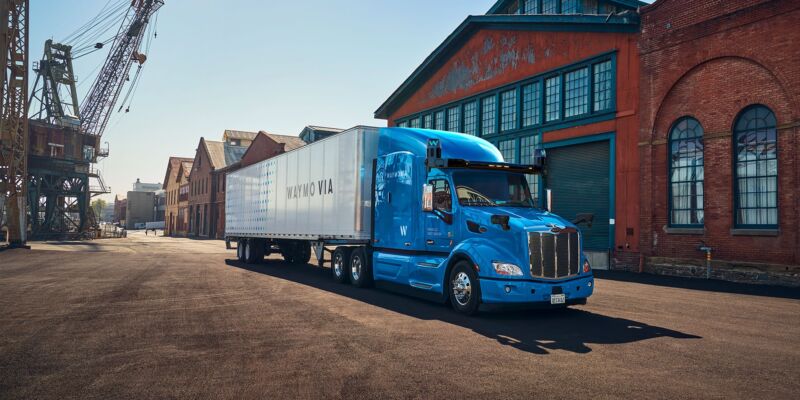
On Thursday morning, Waymo announced that it is working with trucking company JB Hunt to autonomously haul cargo loads in Texas. Waymo's Class 8 trucks equipped with the autonomous driving software and hardware system called Waymo Driver will operate on I-45 in Texas, taking cargo between Houston and Fort Worth.
However, the trucks will still carry humans—a trained truck driver and Waymo technicians—to supervise and take over if necessary.
Although Waymo is better known for the autonomous taxi service it operates in a suburb of Phoenix, the company started experimenting with adding its autonomous technology to freight haulers several years ago. And in 2018, it began testing those trucks in the Atlanta area. What makes today's news notable is the partnership with a major truck operator."This will be one of the first opportunities for JB Hunt to receive data and feedback on customer freight moved with a Class 8 tractor operating at this level of autonomy. While we believe there will be a need for highly skilled, professional drivers for many years to come, it is important for JB Hunt as an industry leader to be involved early in the development of advanced autonomous technologies and driving systems to ensure that their implementation will improve efficiency while enhancing safety," said Craig Harper, chief sustainability officer at JB Hunt.
“We're thrilled to collaborate with JB Hunt as we advance and commercialize the Waymo Driver," said Charlie Jatt, head of commercialization for trucking at Waymo. "Our teams share an innovative and safety-first mindset as well as a deep appreciation for the potential benefits of autonomous driving technology in trucking. It's companies and relationships like these that will make this technology a commercial reality in the coming years."
reader comments
171